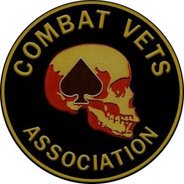Don't hold your breath ...
... or if you're Frank Rich, please do.
After last weekend’s correspondents’ dinner, The Times decided to end its participation in such events.Riiiiiiight.
After reading Rich's screed, I first wondered why anyone would intentionally pull any of the irrelevant New York Times columnists out from behind their self-imposed pay-wall. Then it occurred to me that if a Times columnist writes something with enough heat (pathos) - even if completely lacking in logos or ethos - it just might be deemed good enough by some partisan website/blog to be reprinted in the public sphere.
It's a reverse-gatekeeper function!
Even more disappointing is Jay Rosen's post at his recently neglected PressThink blog. After complaining about Bush breaking the consensus and not playing by long established rules with the press, he tosses out this gem:
Still, Rutenberg didn’t violate any of the rules for interviewing sources, and I knew what I was getting into when I called him back. Reporter and I talk for 30 to 45 minutes; he decides which twelve seconds he wants to use. If he has a pre-existing narrative that he wants me to ratify, chances are good I will say something he can use to do just that. Them’s the rules.See? The compliant and slow-to-catch-on press that has been busily selecting 12 second sound bites to validate their own pre-existing narratives during the first six years of the Bush administration were in fact overwhelmed!
"I told Rutenberg that I did not see the press as "in the pocket of Bush" (as many on the left do) but as overwhelmed by the phenomena of Bush-as-president, and by the radicalism of his Administration, especially the expansion of executive power."Now that would be an interesting PressThink post. How does a press, blinded by an "objective process" that includes splicing sound bites and anonymous sources together in order to validate their own pre-existing narratives, get "run over" by a President?
[Journalists] were unable to think politically about their own institution, but they could go on for quite a while about the separation between news and opinion sections.Related: History of the White House Correspondents’ Association
The WHCA lay dormant until 1920 when the organization held its first dinner. In 1924, Calvin Coolidge became the first of 13 presidents to attend the dinner.UPDATE: Edited for clarity.
Until World War II, the annual dinner was an entertainment extravaganza, featuring singing between courses, a homemade movie and an hour-long, post-dinner show with big-name performers.





No comments:
Post a Comment